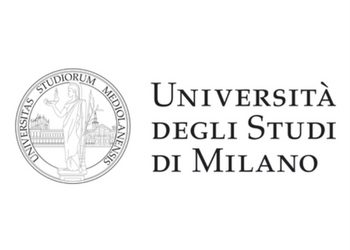

The University of Milan - UniMi
speciality: Communication
What is a Communications degree?
Communications is a universal degree, which explores the traditional forms of communication such as verbal, physical, visual and written communication but also extends beyond that to cover mass communication and social media. There are different types of communications degrees depending on the degree level.
Overall, Communications focuses on teaching effective communication through social media, web, print, mass media and verbal communication. However, there are two types of Communications degrees that exist. For instance, a Bachelor of Arts in Communications in the US is focused on preparing students for careers that are connected to writing, marketing, promotions, journalism and public relations. In contrast, Bachelor of Science in Communications is dedicated to the technology used in the science behind modern communication and prepares students for careers in production or sound engineering.
A Communications degree teaches students about how media and communication influences cultures, societies and people’s identities. It involves a significant amount of critical writing and research and covers different disciplines such as journalism, public relations, entertainment production, marketing, event planning and so many more disciplines, which are somehow connected to exchanging information and conveying messages. There are also different specialization options associated with this degree, including political communication, mass media, journalism, health communication, etc.
It is worth noting that a Communications degree has many intersection points with psychology, sociology, linguistics and in some cases politics.
Benefits of a Communications degree
The main benefit of a Communications degree is its universal nature. It applies to almost any subject or professional setting. For example, some of the top careers in the field of Communications include announcers, art directors, editors, broadcast and sound engineering technicians, reporters, correspondents, broadcast analysts, technical writers, writers and authors, interpreters, translators, etc. Therefore, it keeps students’ career options open and doesn’t require them to have a predetermined career path that they want to follow.
Communications degrees prepare students to make an impact from the start of their careers unlike other degrees, which require further training. This is possible thanks to the multitude of professionally accredited degrees in Communications, which develop students’ abilities based on the established standards in the field. Moreover, there are many Communications courses, which offer work placement opportunities that enable students to gain the required professional skills before they have even started their career.
Another benefit associated with Communications degrees is the fact that they develop students’ written and verbal communication skills significantly.
A major advantage of Communications over other degrees is that in most cases there are no prerequisites required to study Communications.
Communications degree structure
The duration of a Communications degree varies depending on the country and degree level. For example, Higher Education Institutions in the UK offer 3-year Bachelor’s courses. In some cases, the course may extend to four years if students are given the opportunity to spend a year abroad or in industry between the second and third year through a sandwich course. Bachelor’s degrees in Communications in the US usually take around four years to complete.
Over the duration of a Bachelor’s Communications degree, students are expected to learn and be able to apply the established communications theories by developing the technical skills required to work in a professional setting. In the first year of their studies, students learn predominantly how media and communication influences cultures, societies and people’s identities. Optional modules may introduce them to professional communication, journalism, documentary, film-making, marketing, etc. In addition to the introductory topics, this degree allows students to learn about more complex areas of communications such as interpersonal relations, brand management and linguistics at a later stage. For instance, the second and third years enable students to get a deeper understanding of theoretical concepts related to media and culture and develop practical skills in research and communications. Additionally, students may have the opportunity to take optional modules and pursue their interests in different areas related to Communications such as gender, race, youth, culture, digital media, political communication, public relations, etc.
The most common duration of a Master’s degree in Communications is between 1 and 2 years depending on the mode of study (full-time or part-time) and country.
PhD and MPhil degrees in Communications require students to dedicate anywhere between 3 and 6 years to their studies depending on the mode and country of study.
4 Student Reviews
Filter reviews-
Communication25 Jul, 2022
 StudentUniMI - University of Milan
StudentUniMI - University of MilanUniMi is one of the universities that allows you to have a nice life as a student. My experience was electrifying, I recommend this university because it is possible to learn, have fun, work and travel in Italy. The professors and staff are very nice and helpful.
View moreProgramme: CommunicationDegree: Master'sGraduation: 2015Delivery Type: On CampusCampus: Milano -
Communication and ...16 Oct, 2021
 StudentMaster COM - University of Milan
StudentMaster COM - University of MilanI was looking for a dynamic course that could push me out of my comfort zone and I think attending this course was the best choice. The internationalization of the course, thanks to the presence of young people from different countries and the lessons taught in English, allows you to improve the language and to deal with various lifestyles and cultures. In addition, the compulsory internship helps you face for the first time in the world of work, and the numerous group work and presentations required, stimulate the study, curiosity, and participation of students. Recommended!
View moreProgramme: Communication and Social SciencesDegree: Master'sGraduation: 2021Delivery Type: On CampusCampus: Milano -
Communication20 Dec, 2019
 AliceGood
AliceGoodIt is a good university, I spent three years here and they were definitely the best in my life, certainly thanks to the people I met. Some flaws that I can bring up are about the organization; students are often left to themselves as regards more or less simple procedures. Another flaw, however, depends on the locations, in conservatory way I didn’t mind being. Not too dispersed and it was my home, however there were no suitable structures and classrooms; I spent almost all the lunches sitting on the stairs, not having a canteen (if not a tiny one in the bar that you could only access if you bought there, as well as the microwave) and many lessons sitting on the ground.
View moreProgramme: CommunicationDegree: Bachelor'sGraduation: 2019Campus: Milano -
Communication and ...12 Apr, 2019AndreaOverall a decent University, but some courses are too abstract
My experience at “Università degli Studi di Milano” was not as I had anticipated: some classes were held by professors that did not care that much about teaching or having students interested in their lectures. This and the fact that I had to go back and forth from my city (Brescia, roughly 4 hours of commuting everyday) led me to not follow many classes. This institution has a problem bigger than itself, which is the high price of rents in the whole city of Milan, which makes it impossible to live there for students that are not well backed by their own families.
Overall, my course in “Comunicazione and Società” was quite interesting in some parts, but we never had the chance to apply what we had learned before, making it almost useless. Also there weren’t any contacts with business, which made it really difficult to find a job afterwards.
View moreProgramme: Communication and Social SciencesDegree: Bachelor'sGraduation: 2018Campus: Milano

